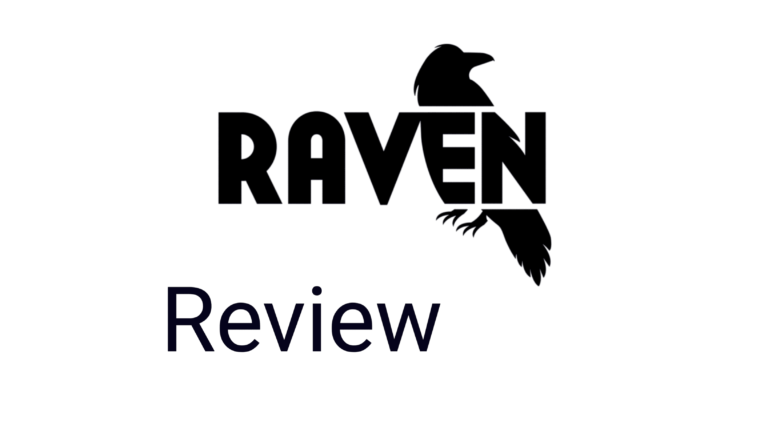Welcome to the world of SEO, where finding the right keywords can make or break your online presence. In this article, we’re diving deep into the realm of keyword tools, essential companions for any digital marketer or website owner. But before we delve into the nitty-gritty, let’s understand what exactly a keyword tool is and why it’s crucial in the digital landscape.

Table of Contents
Keyword Tool Review 2024
In the simplest terms, a keyword tool is like a treasure map for digital marketers, guiding them to the most valuable terms and phrases that people use when searching online. These tools analyze search engine data to provide insights into what users are searching for, helping marketers tailor their content to meet those demands.
Types of Keyword Tools
Exploring the Toolbox
Keyword tools come in various shapes and sizes, each offering unique features catered to different needs. From basic free tools to advanced paid versions, there’s something for everyone in the keyword tool market.
1. Free Keyword Tools
These tools are a great starting point for beginners and budget-conscious marketers. They offer basic keyword suggestions and search volume data without breaking the bank.
2. Paid Keyword Tools
For those willing to invest in their SEO strategy, paid keyword tools provide more advanced features like competitor analysis, keyword difficulty scores, and comprehensive data insights.
3. Long-tail Keyword Generators
Long-tail keywords are specific phrases that typically have lower search volume but higher conversion rates. Long-tail keyword generators help uncover these hidden gems, perfect for niche markets and targeted campaigns.
Features to Look For Keyword Tools
Sorting the Essentials from the Extras
When choosing a keyword tool, it’s essential to focus on features that align with your goals and objectives. Here are some key features to consider:
1. Search Volume
Knowing how many people are searching for a particular keyword is crucial for prioritizing your efforts.
2. Keyword Difficulty
Understanding the competition for a keyword can help you gauge your chances of ranking higher in search results.
3. Competitor Analysis
Analyzing what keywords your competitors are targeting can provide valuable insights and inspiration for your own strategy.
Popular Keyword Tools
Navigating the Landscape
With a plethora of keyword tools available, it can be overwhelming to choose the right one for your needs. Let’s take a closer look at some of the most popular options:
1. Google Keyword Planner
As the granddaddy of keyword tools, Google Keyword Planner offers a vast database of search terms directly from the world’s largest search engine.
2. SEMrush
SEMrush is a powerhouse in the SEO industry, offering a comprehensive suite of tools for keyword research, competitive analysis, and more.
3. Ahrefs
Ahrefs is another heavyweight contender, known for its robust backlink analysis and keyword research capabilities.
Pros and Cons Keyword Tool
Weighing the Options
While each keyword tool has its strengths, they also come with their fair share of drawbacks. Let’s weigh the pros and cons of our top contenders:
Google Keyword Planner
- Pros: Free to use, integrates seamlessly with Google Ads.
- Cons: Limited keyword suggestions, lacks advanced features.
SEMrush
- Pros: Comprehensive toolset, extensive competitor analysis.
- Cons: Relatively expensive for small businesses, steep learning curve.
Ahrefs
- Pros: In-depth backlink analysis, accurate keyword data.
- Cons: Higher price point, may overwhelm beginners.
How to Choose
Finding Your Perfect Match
With so many options on the market, how do you choose the right keyword tool for your needs? Here are some tips to help you make an informed decision:
1. Define Your Goals
Start by outlining your SEO objectives and determining what features are essential for achieving them.
2. Consider Your Budget
While paid tools offer more advanced features, don’t overlook the value of free tools, especially if you’re just starting.
3. Read Reviews and Testimonials
Before committing to a keyword tool, research reviews and testimonials from other users to gauge its effectiveness and user-friendliness.
Case Studies
Putting Theory into Practice
To illustrate the power of keyword tools in action, let’s explore some real-world case studies showcasing their impact on SEO success.
Unlocking the Power of Keywords
In the ever-evolving landscape of digital marketing, keyword tools remain indispensable assets for anyone looking to boost their online visibility. By understanding the nuances of keyword research and choosing the right tools for the job, you can unlock the potential to reach your target audience and achieve your business goals.
Are keyword tools only for SEO professionals?
Keyword tools are valuable for anyone with an online presence, from small business owners to bloggers and marketers. Whether you’re optimizing your website for search engines or crafting compelling content, keyword tools can provide valuable insights into what your audience is searching for.
Can I use multiple keyword tools simultaneously?
Absolutely! Using multiple keyword tools can provide a more comprehensive view of search trends and keyword opportunities. Experiment with different tools to find the combination that works best for your needs.
Do keyword tools guarantee top search rankings?
While keyword tools can help identify valuable keywords, achieving top search rankings requires a holistic SEO strategy that encompasses content quality, user experience, backlinks, and more. Keyword tools are just one piece of the puzzle.
Are there any free keyword tools worth using?
Yes, several free keyword tools offer valuable insights, such as Google Keyword Planner, Ubersuggest, and AnswerThePublic. While they may not have all the bells and whistles of paid tools, they can still be effective for basic keyword research.
How often should I use a keyword tool?
Keyword research is an ongoing process that should be revisited regularly to stay ahead of evolving search trends and competition. Aim to incorporate keyword research into your content planning and optimization efforts on a consistent basis.



